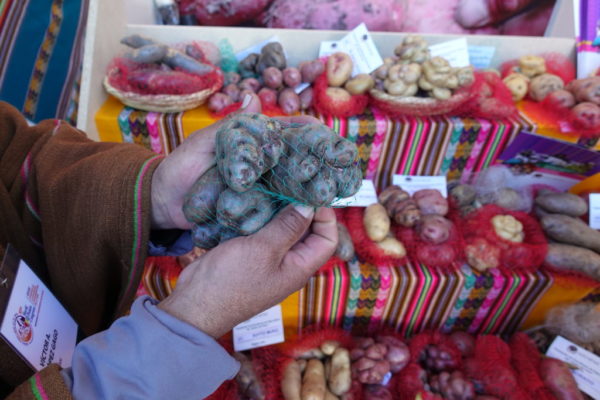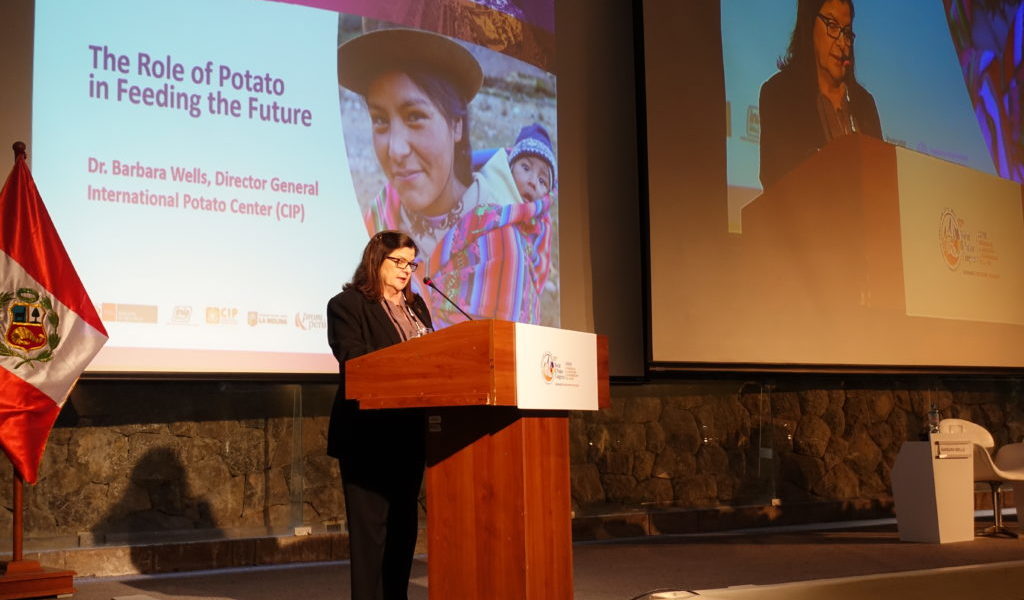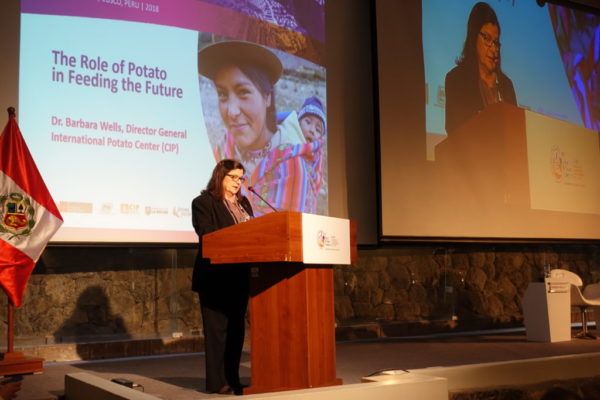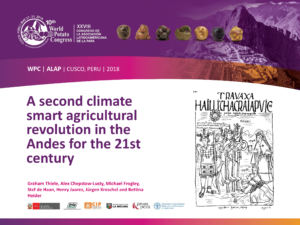More than 800 potato scientists, industry representatives, government officials and other interested parties from 50 countries have gathered in the Andean city of Cusco, Peru for the 10th World Potato Congress (WPC) and the 28th Congress of the Latin American Potato Association (ALAP), held from May 27 – 31. The event, which includes prominent participation by scientists from the International Potato Center (CIP), the lead center of the CGIAR Research Program on Roots, Tubers and Bananas (RTB) has raised the potato’s profile in Peru and beyond by highlighting the crop’s rich biodiversity and its potential for reducing hunger, malnutrition and poverty.
The WPC is the most important international event for potato science and business, held in a different country every three years. WPC 2018 marks the first time that the Congress takes place in Latin America.
In his address to participants, Peru’s Minister of Agriculture and Irrigation, Gustavo Mostajo, noted that the decision to hold the event in Cusco was due to the fact that it lies in the potato’s center of origin, near where potatoes were first domesticated almost 10,000 years ago, and where most of the world’s potato biodiversity is found.

Local potato farmer, Victor Lopez Gago, shows one of his favorite potato varieties at his stall at WPC 2018. Photo: H.Holmes/RTB
“This will be an opportunity for Latin American researchers – in one great event – to learn about the latest advances in potato science and businesses in different geographical contexts around the world,” he said.
The Congress was inaugurated Monday morning by the President of Peru, Martin Vizcarra, who noted that more than 10 percent of his country’s population depends on potato, but that most of them lead lives of subsistence. He expressed his hope that the knowledge shared during the three-day event will contribute to his country’s goal that “the potato serves to not only to alleviate hunger, but also to generate progress and development for farmers, no matter how small they are.”
In a plenary presentation, CIP’s Director General, Dr. Barbara Wells, described the extent and impacts of hunger and micronutrient deficiencies globally, and the challenges that farmers in the developing world face to grow enough food and earn a decent living. She warned that the challenges of feeding the world and reducing malnutrition will grow over the next three decades, as the world’s population approaches 10 billion and climate change threatens agriculture in many regions. However, she also cited improvements in potato breeding, seed systems, agronomic practices and other areas that can help the global community meet those challenges.
She explained that while potatoes are already a good source of carbohydrates, vitamin C, iron and zinc, CIP scientists in Peru have spent the past decade crossing native potatoes with high iron and zinc content to breed biofortified potatoes – with double the original levels of those micronutrients. These efforts will contribute to reducing malnutrition and anemia in several countries in the coming years.
Climate change was also a key issue discussed at the event. RTB Director, Graham Thiele, delivered a presentation during one of the technical sessions entitled ‘A second climate smart agricultural revolution in the Andes for the 21st century’. The presentation examined the ways in which the Inka Empire adapted to climate change around 1000 years ago and drew lessons for the Andean region today. Thiele was awarded Best Oral Presentation under the climate-related technical session.
WPC 2018 was organized by INIA, which is part of Peru’s Ministry of Agriculture and Irrigation, in collaboration with CIP, the National Agrarian University La Molina, the Ministry of Foreign Trade and Tourism and the Peru country office of the Food and Agriculture Organization.
Read the original version of this article on the CIP website.
See the social media coverage of the event below by RTB:


